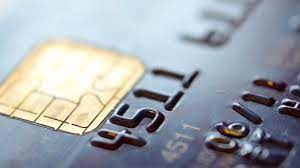How closing a Card Can Have a Negative Impact on Your Credit
Jan 21, 2024 By Triston Martin
Your credit score is calculated using information from all your credit cards that are reported to the major credit agencies. This indicates that how you use the card affects how your credit score changes over time. There are a few main ways in which closing a credit card account might affect your credit score, and regrettably, the impact is rarely beneficial.
Your credit usage rate can increase. If you terminate a credit card account, especially one that still has a debt, the credit limit will no longer be considered when determining your credit score; as a result, your credit usage ratio may quickly increase. The credit usage ratio is a measurement that determines how much of your total available credit you are utilizing. The percentage of available credit being utilized may be broken down globally and on a card-by-card basis when calculating credit usage. Your ratio will increase if you maintain the same debt level but reduce the amount of accessible credit you have access to. This is crucial to keep an eye on since usage accounts for thirty percent of your total score.
Your credit "age" may become younger. Because accounts that have been closed successfully will remain on your credit report for up to ten years, it may be some time before you feel the effects of this. Because the credit card is no longer being used, it will be removed from your credit record when some time has passed. If you close the account that has been with you the longest, your credit score may suffer in the future when that account is removed from your credit report. When closing whether or not to close a credit card account, you should give priority to accounts that have the shortest credit age. At the same time, you should evaluate how a smaller total credit limit will affect your credit use in the here and now and in the future.
Your credit record will reflect a decrease of one open account. If you don't have a lot of other credit cards or loans, this might leave you with a thin credit file, which means that a creditor doesn't have enough information to decide your creditworthiness.
Your credit mix may be impacted. Your score is based on 10% of how you blend your credit. Your credit score may be improved by providing evidence that you can manage many forms of credit. You may have less expertise in managing many types of credit accounts if you shut down your single credit card account. Whether you or the card issuer closed the credit card account does not make a difference. Your credit score will be affected in the same way.

When is it acceptable to Cancel a Credit Card Account
If you want to improve your credit card and your financial situation, you may consider closing one or more of your credit cards. You can decide to cancel a credit card if you find that using it now costs more than the value it provides. This may occur if the yearly price is raised or the rewards program no longer provides the same level of value as it did in the past. The high annual percentage rate (APR) charged by a credit card company is another possible impetus for canceling a credit card account. Remember that you may avoid the expense of a high interest rate expense by taking advantage of the grace time and paying your amount in full each month to avoid incurring financing charges on your balance. This will save you from having to pay interest charges on your balance.

If you are attempting to go outside from debt but find that you can't resist desire to spend, closing credit card may be worth the temporary harm it may do to your credit score. If you continue to accrue charges, you risk derailing the progress you've made in paying down your debt.
Last but not least, you may decide to cancel a secured credit card or a retail credit card that you utilized to get your credit history off the ground or rebuild it. It is permissible to cancel older credit cards that are no longer useful when you become eligible for better credit cards, such as those with reduced interest rates or rewards programs. These cards may have been beneficial to you, but they are no longer in your best interest.








